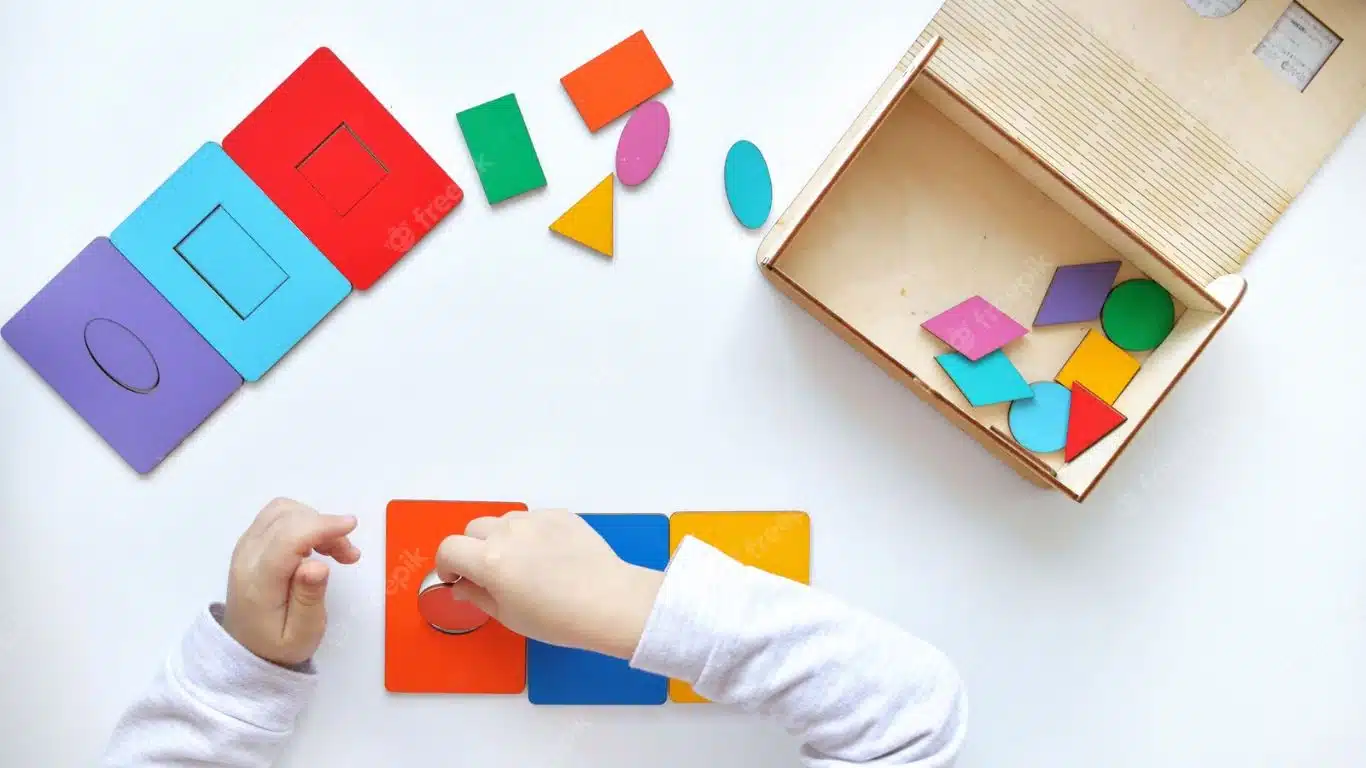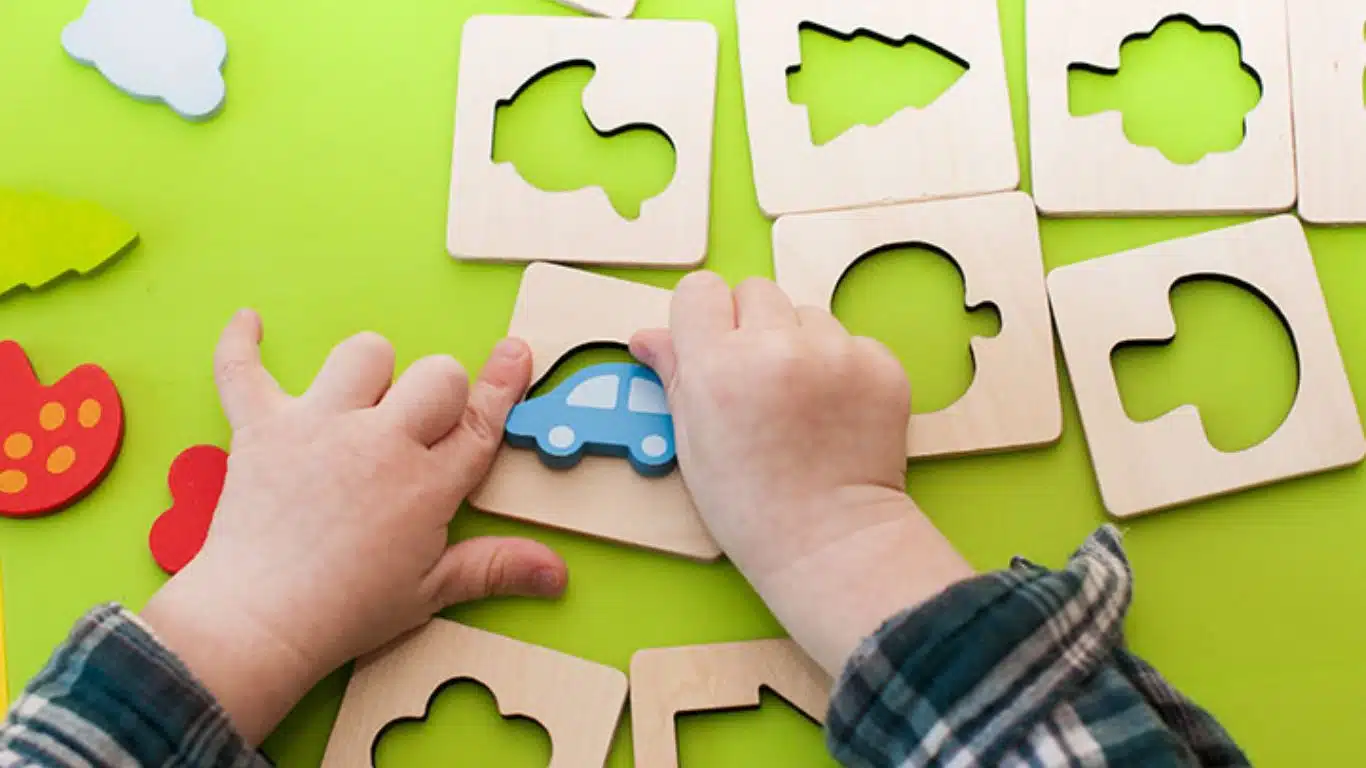Educational games have become increasingly popular as a tool for shaping children’s learning experiences. With the rapid advancement of technology, these games offer a unique and interactive approach to education, making learning enjoyable and engaging for children. In this blog, we will explore the ways in which educational games can positively impact children’s learning and find the answer to the question, How Educational Games Shape Children’s Learning?
How Educational Games Shape Children’s Learning?
Benefits of Educational Games
Educational games empower children to take an active role in their own learning, fostering a love for learning that extends beyond the boundaries of formal education. They offer a safe and supportive space for children to explore, make mistakes, and learn from them, promoting a growth mindset and a sense of achievement. Let’s explore these benefits in detail:

- Engagement and Motivation: Educational games have the ability to captivate children’s attention and keep them engaged for extended periods. The interactive nature of these games, coupled with immediate feedback and rewards, fosters a sense of achievement and motivation. Children are more likely to invest time and effort in learning when they find it enjoyable and rewarding. By harnessing the power of play, educational games create an immersive and stimulating environment that fuels children’s intrinsic motivation to learn.
- Active Learning and Hands-on Experience: One of the key advantages of educational games is that they promote active learning and provide hands-on experience. Through problem-solving challenges, decision-making scenarios, and strategic gameplay, children actively participate in the learning process. These games encourage critical thinking skills, allowing children to explore different approaches, make choices, and witness the consequences of their actions. The experiential nature of educational games bridges the gap between theoretical knowledge and real-world applications, enhancing children’s understanding and retention of concepts.
- Subject-Specific Knowledge Acquisition: Educational games cater to various subject areas, allowing children to acquire subject-specific knowledge in a fun and interactive manner. language and literacy development games can strengthen vocabulary, reading comprehension, and writing skills. Mathematics games can improve numerical proficiency, logical reasoning, and problem-solving abilities. Science-based games facilitate experimentation, exploration, and scientific thinking. By aligning with specific learning objectives, educational games provide targeted learning experiences that reinforce and consolidate children’s understanding of different subjects.
Cognitive Development and Skills Enhancement
Educational games serve as effective tools to promote cognitive development and skills enhancement in children. By targeting memory, attention, problem-solving, creativity, executive function skills, and information processing, these games provide a stimulating and engaging environment that supports children’s cognitive growth and academic success. Let’s explore this aspect further:

- Memory and Retention: Educational games often incorporate memory challenges and exercises that help children improve their memory and retention abilities. Through repetition, pattern recognition, and information recall tasks, children exercise their memory muscles and strengthen their ability to store and retrieve information. By actively engaging with game-based activities that require them to remember and apply knowledge, children develop robust memory skills that can benefit them across various subjects and real-life situations.
- Attention and Concentration: Educational games demand focused attention and concentration from children. They often present tasks that require sustained focus and the ability to filter out distractions. As children immerse themselves in gameplay, they learn to direct and maintain their attention on the relevant information or stimuli. This ability to concentrate and sustain attention is valuable for academic tasks, problem-solving, and everyday activities that demand mental focus.
- Problem-Solving and Creativity: These games nurture children’s problem-solving skills and foster their creativity. These games present challenges and puzzles that require analytical thinking, logic, and creativity to find solutions. By engaging in game-based problem-solving activities, children learn to approach complex problems with a systematic and creative mindset. They develop the ability to think critically, generate innovative ideas, and explore different perspectives, fostering a sense of intellectual curiosity and flexibility in their thinking.
- Executive Function Skills: Educational games contribute to the enhancement of executive function skills, which are crucial for self-regulation and goal-directed behavior. These skills include cognitive flexibility, working memory, and inhibitory control. Educational games often require children to switch between different tasks, hold information in their working memory, and inhibit impulsive responses. By regularly engaging in game-based activities that challenge these executive function skills, children develop stronger cognitive control and self-regulation abilities that can positively impact their academic performance and everyday life.
- Information Processing and Cognitive Flexibility: They also provide opportunities for children to engage in information processing tasks, such as analyzing, synthesizing, and organizing information. They may involve sorting, categorizing, and matching activities that enhance children’s cognitive flexibility and adaptability. Through exposure to diverse gameplay experiences and scenarios, children learn to process and manipulate information efficiently, expanding their cognitive abilities and adaptability to different learning contexts.
Social and Emotional Development
Educational games offer a unique platform for children to engage in social interactions, develop empathy, make ethical choices, and build emotional intelligence. By incorporating elements of collaboration, perspective-taking, moral decision-making, and resilience, these games promote social and emotional skills that are essential for healthy relationships, personal growth, and overall well-being. Let’s explore how educational games contribute to social and emotional development:

- Collaboration and Teamwork: Many educational games incorporate cooperative gameplay, encouraging children to work together towards a common goal. By engaging in collaborative activities, children learn the importance of teamwork, communication, and mutual support. They develop skills such as active listening, sharing ideas, and resolving conflicts constructively. Collaborative gameplay promotes social skills, empathy, and the ability to effectively collaborate with others.
- Empathy and Perspective-Taking: Educational games often feature storytelling elements and character development, allowing children to step into the shoes of different characters and experience different perspectives. Through these games, children can develop empathy and a deeper understanding of others’ feelings, motivations, and experiences. They learn to consider different viewpoints, make ethical decisions, and develop a sense of compassion and empathy towards others.
- Moral Dilemmas and Ethical Decision-Making: Some educational games present moral dilemmas and ethical challenges, requiring children to make choices that have consequences for the characters or the game world. By engaging with these scenarios, children are encouraged to think critically about values, ethical considerations, and the impact of their decisions. Educational games provide a safe space for children to explore moral reasoning, ethical decision-making, and the development of a moral compass.
- Emotional Intelligence and Understanding Others: Educational games can help children develop emotional intelligence by representing and addressing a range of emotions within the gameplay. Games that incorporate emotional cues, facial expressions, and storytelling elements can enhance children’s ability to recognize and understand emotions in themselves and others. By navigating emotionally charged situations within the game, children learn to manage their own emotions, develop empathy, and understand the emotional experiences of others.
- Self-Regulation and Resilience: Educational games often present challenges and setbacks that require children to persevere and overcome obstacles. Through gameplay, children learn the importance of goal setting, self-monitoring, and self-regulation. They develop resilience, the ability to bounce back from failures, and a growth mindset that values effort and learning from mistakes. Educational games provide a supportive environment for children to develop strategies for managing frustration, adapting to change, and maintaining a positive attitude in the face of challenges.
Conclusion
Educational games have a profound impact on shaping children’s learning experiences. These games engage children actively, promote hands-on learning, and enhance cognitive, social, and emotional development. By providing a stimulating and interactive environment, educational games foster engagement, critical thinking, problem-solving, and subject-specific knowledge acquisition. They also support the development of important skills such as memory, attention, collaboration, empathy, and self-regulation. Educational games empower children to take ownership of their learning journey, making it enjoyable, meaningful, and impactful. As technology continues to advance, the potential for educational games to shape children’s learning in innovative ways is limitless, paving the way for a future where learning is not only effective but also fun.
Also Read: Top 10 Science Museums In The World



